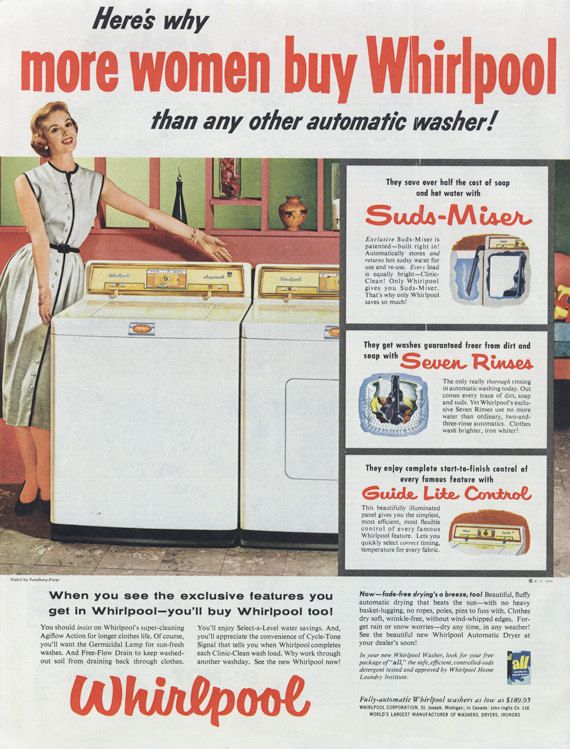Women and work: how the washing machine paved the way for women's liberation - by Tessa Todd-Hinton VII
There is a lot of debate around how technology and new inventions changed the lives of women; some people cite the popularisation of contraception, the legalisation of abortion, or the ability to go to university, as the most crucial factors for women’s liberation in the US. However, in a study from the University of Montreal, Professor Cardia posits that it was the invention of the washing machine and other household appliances, such as the fridge or even the iron, that “liberated women” in the US.
With the invention of the electric washing machine, the time needed to wash a 38 lb load of laundry was reduced from 4 hours to only 41 minutes (a factor of 6)[1]. The time needed to iron it also decreased rapidly, leaving women who would usually be spending most of their day doing household chores such as hand-washing or pressing clothes with a sudden excess of time on their hands. Appliances like the electric stove also greatly reduced the time needed to find firewood, light a fire, and keep that fire alight for long enough to cook a meal.
The result of all this extra time was that women entered the workforce in a way that nobody could have expected. In 1900, only 5% of married women had jobs. By 1980, this number was up to 51%[2]. The jobs that women did have changed drastically, too. In 1870, almost 50% of working women were employed as maids – however, with the new household technology available to (increasingly more) women, this changed completely, and women began to take higher-paying and higher-status jobs. This, in turn, improved women’s status within the home, especially as, with their new financial independence, they could afford to leave their husbands (or at least make credible threats to) if they were not treated as they should be, vastly improving their treatment at home.
In 1900, a woman spent, on average, 58 hours a week doing chores – that’s longer than a typical working week today. In 1975, after the invention of all these household appliances, it was only 18 hours[3]. So, it’s easy to see how the lives of so many women were completely transformed by these inventions, and how they played a huge role in allowing women to gain higher status roles and much more financial independence than ever before.
If you would like to know more about this topic, I would recommend reading Thing 4 of 23 Things They Didn’t Tell You About Capitalism by Ha-Joon Chang (which is a great read overall), or reading the study by the University of Montreal, called "Household Technology: Was it the Engine of Liberation?".
by Tessa Todd-Hinton VII
[1] According to a 1940s study by the US Rural Electrification Authority
[2] According to a study from the University of Montreal
[3] According to a study by the University of Montreal




